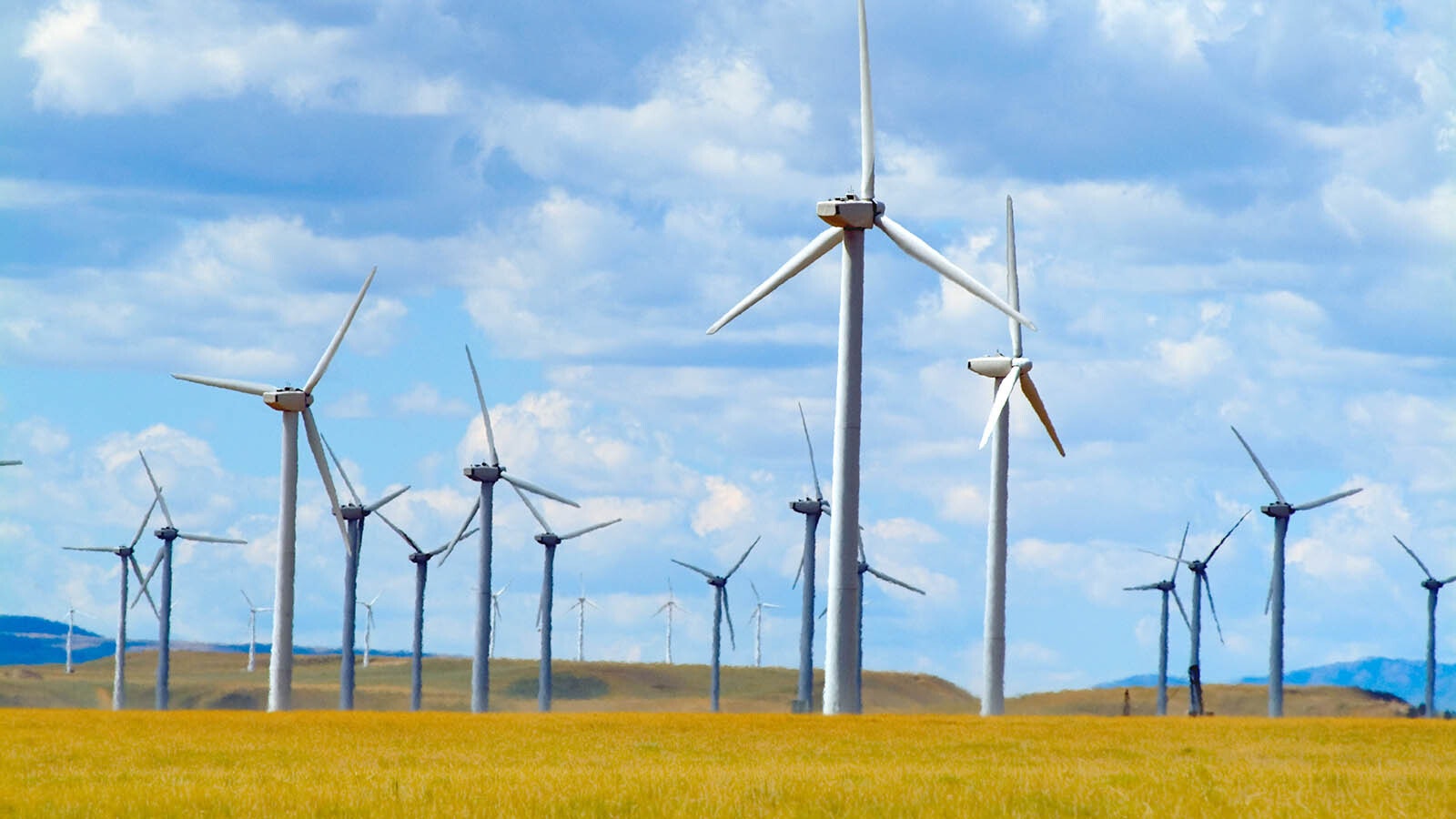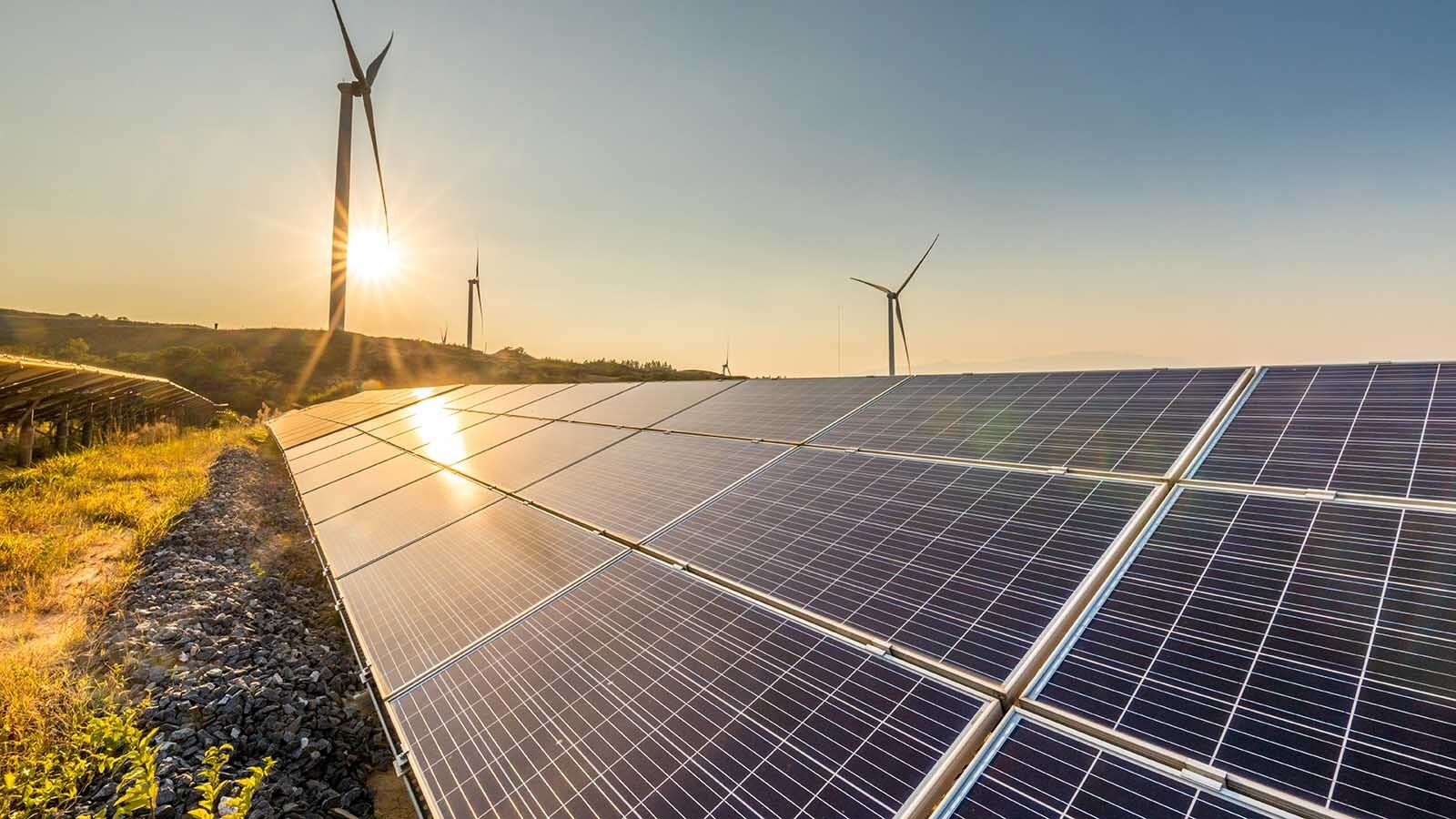Oil, gas and coal companies have been accused of used their financial might to spread disinformation about climate change and oppose efforts to transition to a grid run off of wind and solar power.
If having money to advance an agenda is suspicious, a closer look at both sides of the aisle – environmental and fossil fuels – is warranted.
Data from Guidestar, a resource that tracks finances of nonprofit organizations, shows that revenues of national and Wyoming nonprofits that seek to restrict or completely eliminate fossil fuel use rival those of trade organizations supporting coal, oil and natural gas.
Major oil companies made record profits last year. If they were the only ones impacted by the policies anti-fossil fuel groups push, they could be left to fend for themselves.
However, money raised by environmentalist groups supports policies that push more wind and solar onto the grid. These policies have been shown to drive up energy costs and create reliability issues, which hits the pocketbooks of the poor and middle class.
The organizations pushing for a green energy transition are also well-funded and bolstered by donations from extremely wealthy people.
That the policy and social battle of green energy vs. fossil fuels is a financial David vs. Goliath matchup doesn’t play out – at least not according to the popular narrative. The numbers show that environmental war chests and fundraising outraise fossil fuel groups 2-to-1.
“This is an asymmetrical fight,” energy expert Robert Bryce told Cowboy State Daily.
National Funding
In 2019, the latest year for which data is available for all organizations in this analysis, the American Petroleum Institute, American Gas Association, Western Energy Alliance, Independent Petroleum Association of America, Western States Petroleum Association and the American Coal Council brought in $318 million.
The Natural Resources Defense Council, Sierra Club, Rocky Mountain Institute (RMI), Environmental Defense Fund, Earthjustice and Greenpeace Inc. brought in $717 million the same year.
This doesn’t include all anti-fossil fuel organizations such as 350.org, nor does it include some separate funds, such as Greenpeace Fund Inc., which is a grantmaking wing of Greenpeace.
It also doesn’t include money from a new organization, Climate Imperative, which formed three years ago and had raised $221 million in its first full year of operation.
Based on reports of donations from billionaires, the group is expected to maintain that level of funding for the next few years.
State Funding
The same differences can be seen in funding at the state level in Wyoming.
The Petroleum Association of Wyoming and Wyoming Mining Association brought in $1.7 million in 2019. The Powder River Basin Resource Council (PRBRC) and Wyoming Outdoor Council brought in $3.1 million the same year.
This doesn’t include funding from other groups that work on Wyoming issues, such as the Western Watersheds project, which brought in $1 million in 2019.
Many of these organizations, including the national ones, are coordinating to intervene in a lawsuit by the state of Wyoming, Western Energy Alliance and Petroleum Association of Wyoming (PAW) against the Bureau of Land Management over postponing quarterly lease sales.
Apples To Oranges
Jill Morrison, executive director of the PRBRC, told Cowboy State Daily the comparison isn’t accurate.
That’s because oil companies advocate as corporate entities and have lobbyists working at the state and national levels to advance their interests.
“You’re comparing apples to oranges,” Morrison said of the Guidestar analysis. “You got to look at the big picture. You’re talking about a group like the Powder River that has six employees. We’re not a multibillion-dollar corporation.”
RMI said the organization works outside the U.S. as well.
“As an independent global nonprofit, RMI has worked alongside communities for four decades to promote a just transition from fossil fuels to clean energy,” according to the organization. “We work in Bermuda, Nigeria, the U.S. and beyond, putting resources and agency in the hands of the people most affected by the clean energy transition, including lower-, working- and middle-class communities.”
A report the group produced recommends policies that help coal workers impacted by the transition to green energy.
Unfair Fight
Bryce said you can’t look at oil companies’ profits in a comparison of funding for advocacy.
Nonprofits exist only to advance causes that funders support, he said, and they do this through lobbying, public relations campaigns and litigation. Oil companies, on the other hand, engage in all those activities, but their money comes from their primary purpose — production.
“The energy producers have to provide electrons and molecules, and they have to do it consistently every day. That is much harder to do than just enacting policy. So, it is fundamentally an unfair fight,” Bryce said.
Small Oil
Ryan McConnaughey, spokesperson for the Petroleum Association of Wyoming, told Cowboy State Daily that the policies activists promote and the lawsuits they launch don’t just hurt large multinational corporations.
The most harm, he said, is to the hundreds of small operators that make up the bulk of oil and gas well owners and service companies in Wyoming. These are often locally owned family businesses,
“Activists have thrown around pejoratives like ‘Big Oil’ for a long time, in part because the rhetoric helps fill the deep pockets necessary to fund anti-energy advocacy and never-ending courtroom shenanigans,” McConnaughey said.
He said that despite being out-spent, PAW is proud of what resources it has and will continue to “advocate for the many thousands of men and women working in Wyoming’s oil and natural gas industry.”
Lobbying
Oil companies spend millions of dollars lobbying — far more than wind and solar lobbyists.
Data from Open Secrets shows that, as a ratio of the amount of energy consumed in the United States, sectors dedicated to fossil fuel alternatives — wind, solar, hydroelectric and others — spend more on lobbying.
The U.S. gets 81% of its primary energy from coal, oil and natural gas, according to BP Statistical Review of World Energy. Primary energy includes electricity, transportation and heavy industry. Wind, solar and hydroelectric provide about 10% – virtually all of it for electricity, which is a fifth of energy consumption.
According to Open Secrets, the oil and gas, natural gas transmission and coal sectors spent about $151 million in lobbying in 2022.
Sectors related to alternatives to fossil fuels, which includes hydroelectric, fusion, wind and solar, spent $24.3 million that year. If they supplied as much energy as fossil fuels — eight times more — the equivalent spent lobbying would be $194 million.
This comparison doesn’t factor that oil is used for more than energy. Thousands of products come from petroleum, including plastics, aspirin, deodorant, paint and tires. Metallurgical coal is used to make the raw materials needed to make wind turbines, solar panels, batteries and transmission lines.
Billions To The Left
Hayden Ludwig, director of policy research at Restoration of America, performed a similar analysis in 2021 of 166 “left-leaning policy, activist, litigation and research organizations, along with any associated political action committees.”
Restoration of America is a conservative nonprofit promoting values of “God, family, education and community.”
The groups in Ludwig’s research include those in Cowboy State Daily’s analysis, as well as others, such as the National Wildlife Federation, People for the Ethical Treatment of Animals and NextGen Climate Action Committee.
Altogether, Ludwig concluded, donors gave the groups in 2019 $2.7 billion. They spent $2.4 billion and paid out $435 million in grants to other nonprofits.
Preservation
Ludwig told Cowboy State Daily there’s a key difference between the political left and right.
“We’re trying to preserve, and they’re trying to destroy,” Ludwig said. “They think that energy production is evil because they don’t want more humans on the planet. They don’t want greater human thriving and happiness.”
Ludwig said that you also can’t separate oil companies from the cause of the renewable energy transition, as they are some of the biggest investors in wind, solar and other fossil fuel alternatives.
There are other companies as well, he said, that promote anti-fossil fuel ideas and policies, such as Mark Zuckerberg’s Meta, owner of Facebook. They partner with environmental groups and give them money.
As Bryce detailed in an essay headlined “The Billionaires Behind The Gas Bans,” extremely wealthy people are behind anti-fossil fuel campaigns, including Laurene Powell Jobs, Michael Bloomberg, Jeff Bezos and John Doeer — all multi-billionaires.
Cowboy State Daily reached out to the other nonprofits included this analysis and didn’t receive a response in time for publication.





